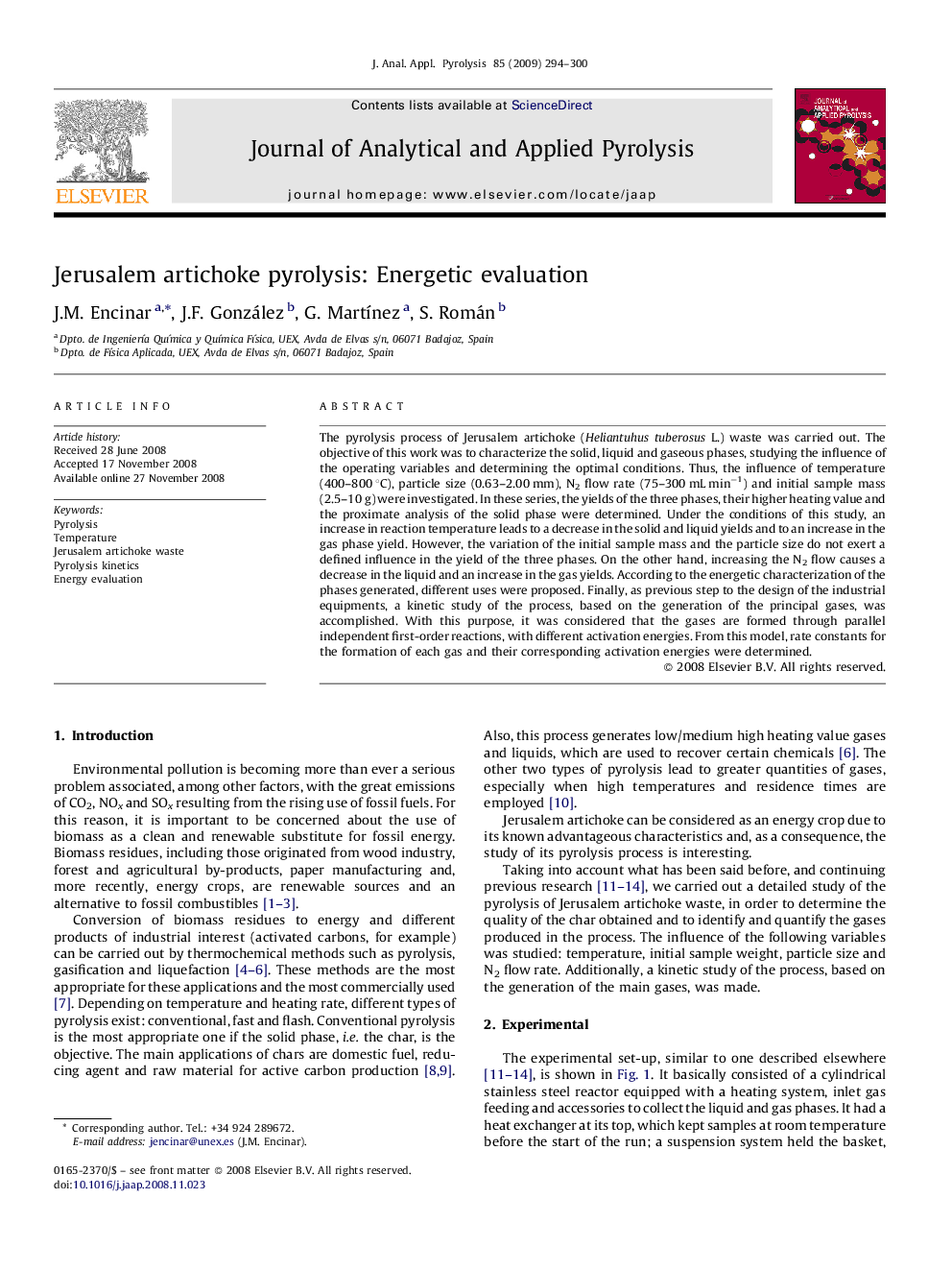| کد مقاله | کد نشریه | سال انتشار | مقاله انگلیسی | نسخه تمام متن |
|---|---|---|---|---|
| 1197524 | 1492986 | 2009 | 7 صفحه PDF | دانلود رایگان |

The pyrolysis process of Jerusalem artichoke (Heliantuhus tuberosus L.) waste was carried out. The objective of this work was to characterize the solid, liquid and gaseous phases, studying the influence of the operating variables and determining the optimal conditions. Thus, the influence of temperature (400–800 °C), particle size (0.63–2.00 mm), N2 flow rate (75–300 mL min−1) and initial sample mass (2.5–10 g) were investigated. In these series, the yields of the three phases, their higher heating value and the proximate analysis of the solid phase were determined. Under the conditions of this study, an increase in reaction temperature leads to a decrease in the solid and liquid yields and to an increase in the gas phase yield. However, the variation of the initial sample mass and the particle size do not exert a defined influence in the yield of the three phases. On the other hand, increasing the N2 flow causes a decrease in the liquid and an increase in the gas yields. According to the energetic characterization of the phases generated, different uses were proposed. Finally, as previous step to the design of the industrial equipments, a kinetic study of the process, based on the generation of the principal gases, was accomplished. With this purpose, it was considered that the gases are formed through parallel independent first-order reactions, with different activation energies. From this model, rate constants for the formation of each gas and their corresponding activation energies were determined.
Journal: Journal of Analytical and Applied Pyrolysis - Volume 85, Issues 1–2, May 2009, Pages 294–300